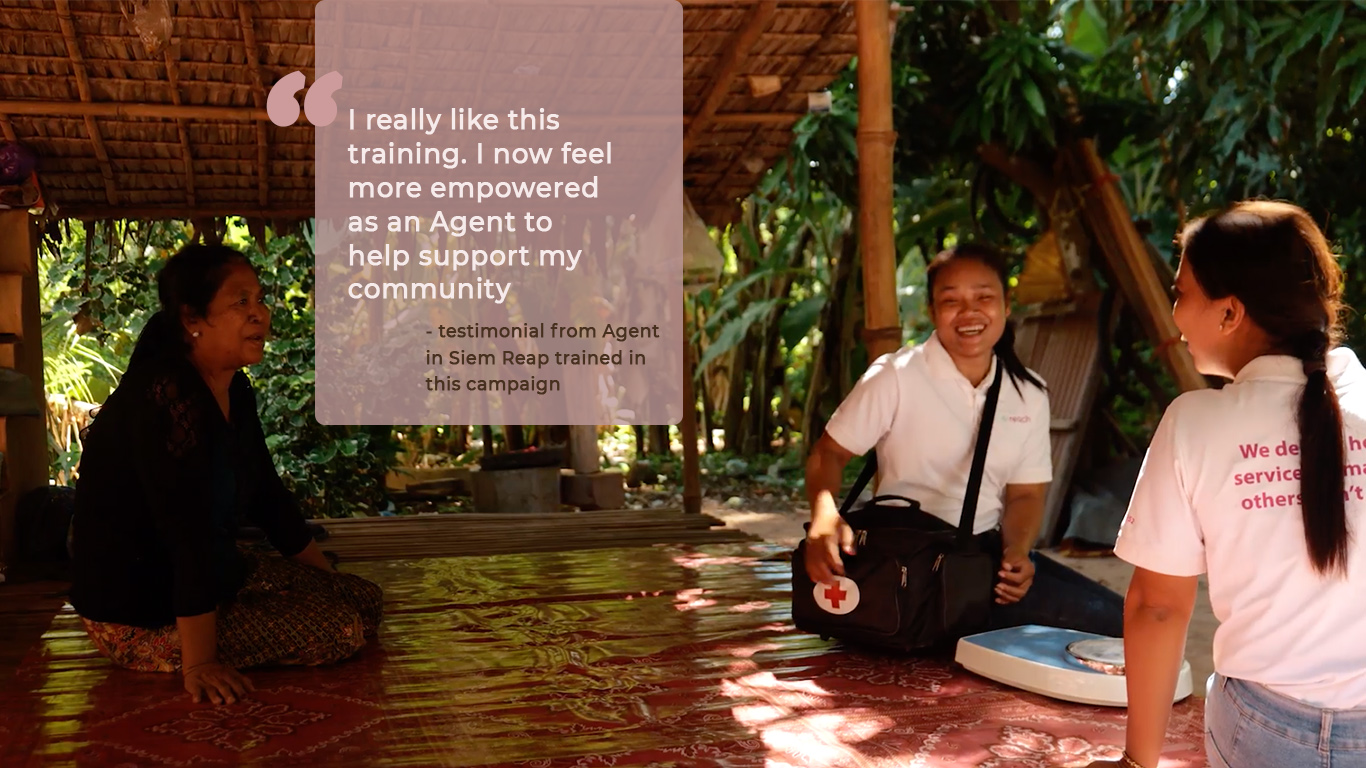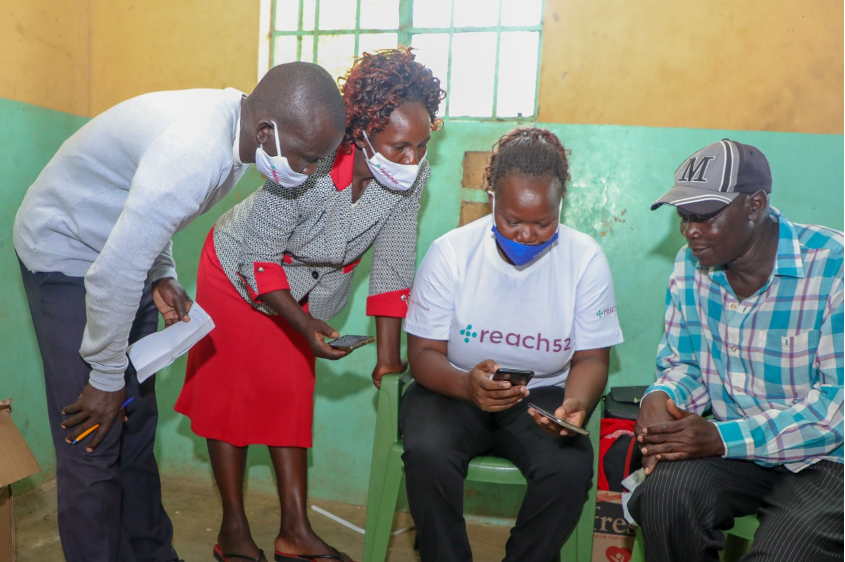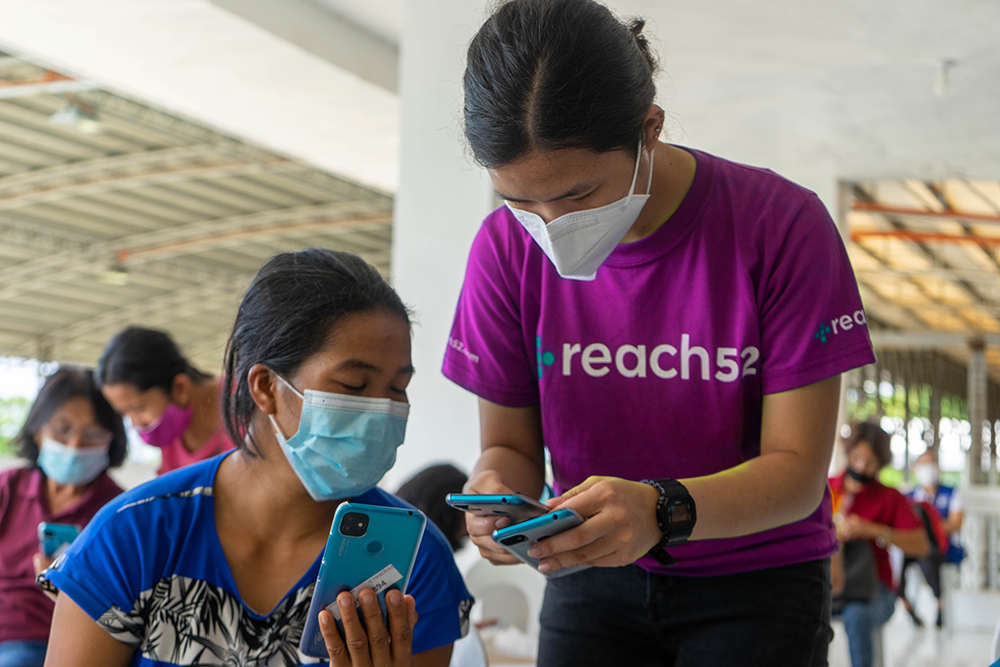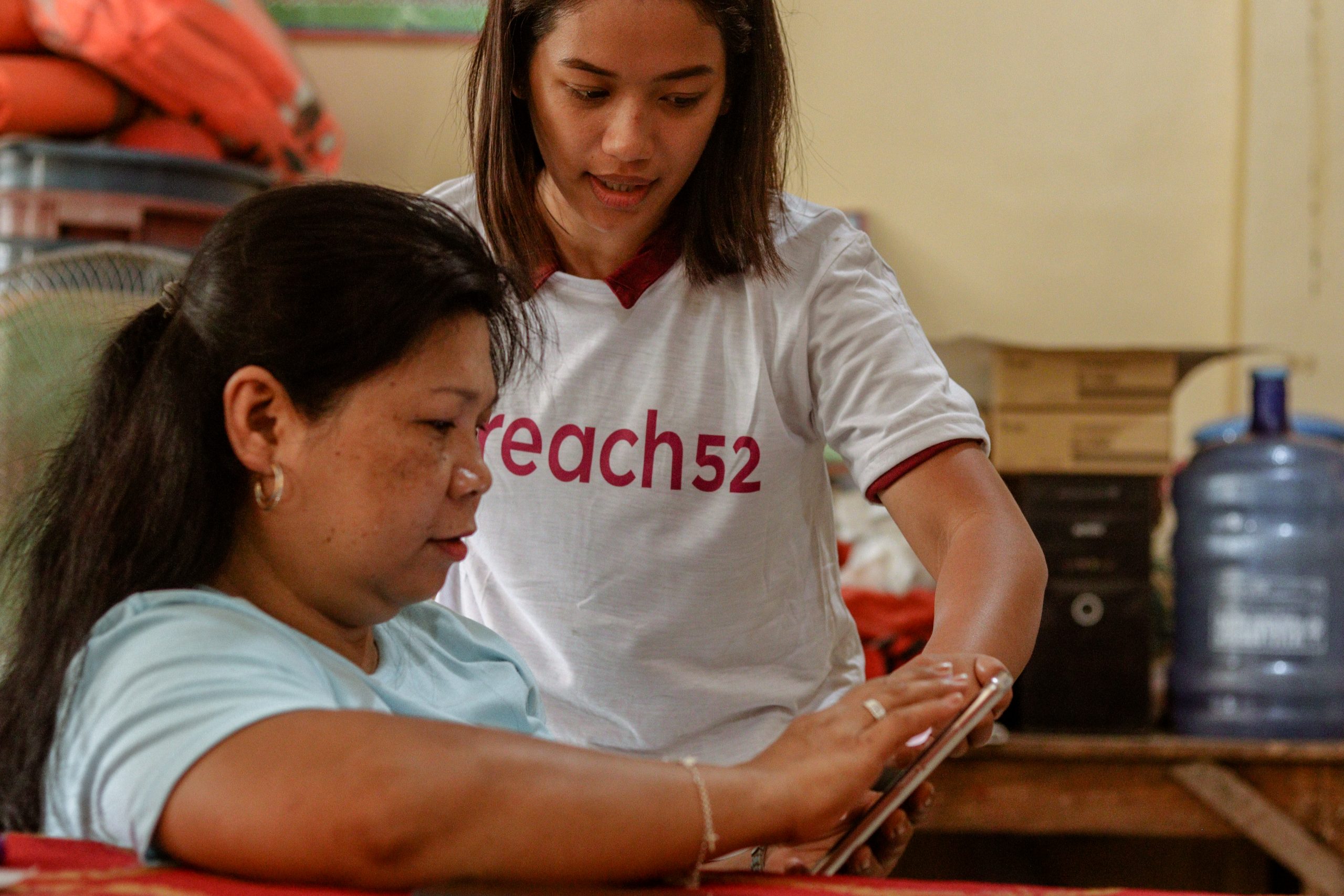The problem
There is an increasing worldwide incidence of dengue with an 8x increase in reported cases over the past 20 years. An estimated 2.5 billion people in more than 100 countries at-risk with an estimated 50 million dengue infections occur annually in the world. The burden is particularly high in SEA with over a million cases in 2019, hitting lower income communities hardest.
Campaign objectives
- Reduce dengue incidence in target communities, particularly among at-risk populations
- Reduce the strain on rural health systems during dengue season, through task-shifting and outreach-based at-home care
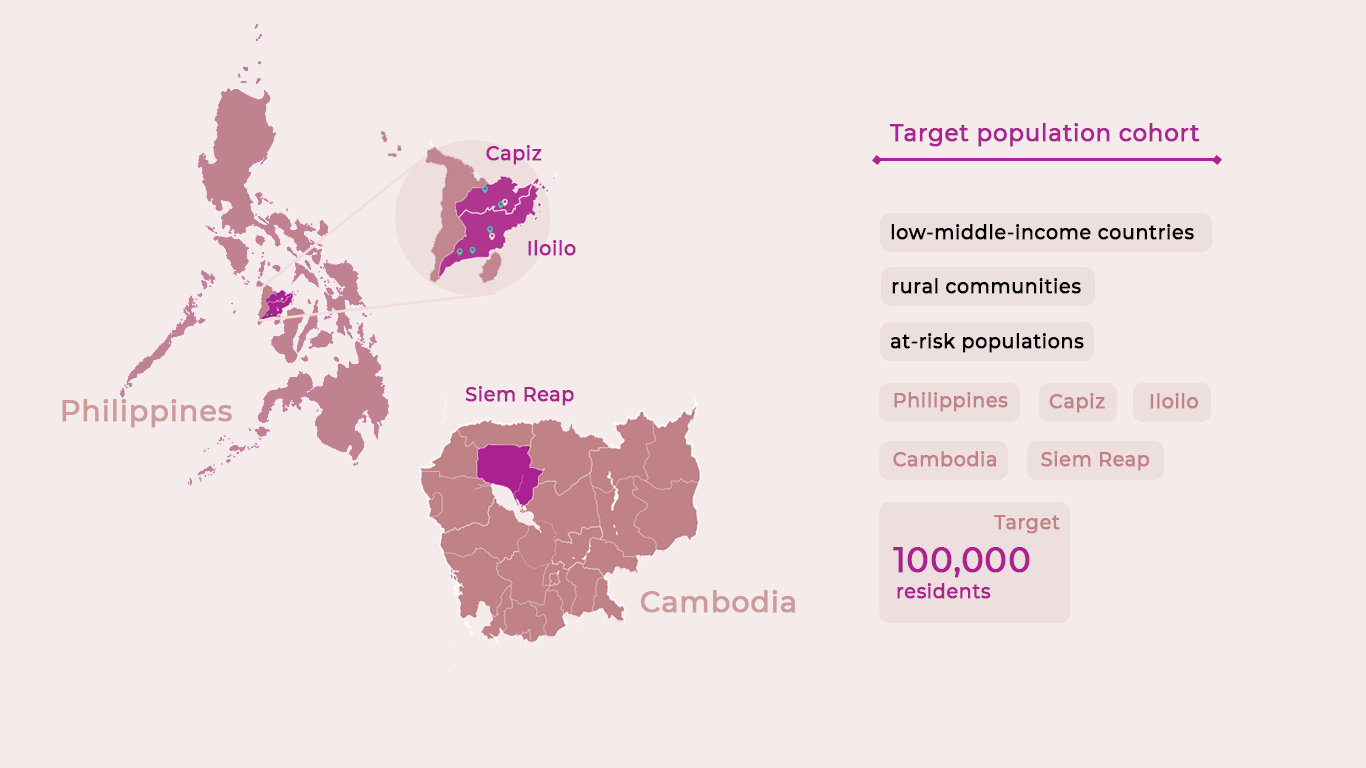
Improve health awareness
As a healthtech organisation, we aim to reach communities through unconventional methods and use digital tools to optimise our efforts. This pandemic has shown the need for us to develop sustainable methods and leave traditional ones behind. However, this can be a challenge, especially in communities with poor digital capacity.

We created a training program to upskill community health workers, empowering them to be part of our established network of reach52 Agents on the ground. Our comprehensive learning module focused on dengue awareness, prevention and screening. Agents played a core role in community education, distribution of flyers, dengue prevention kits and guppies, home-based RDT screenings and facilitating referrals to facility-based care with our offline-first Android app, reach52 access.
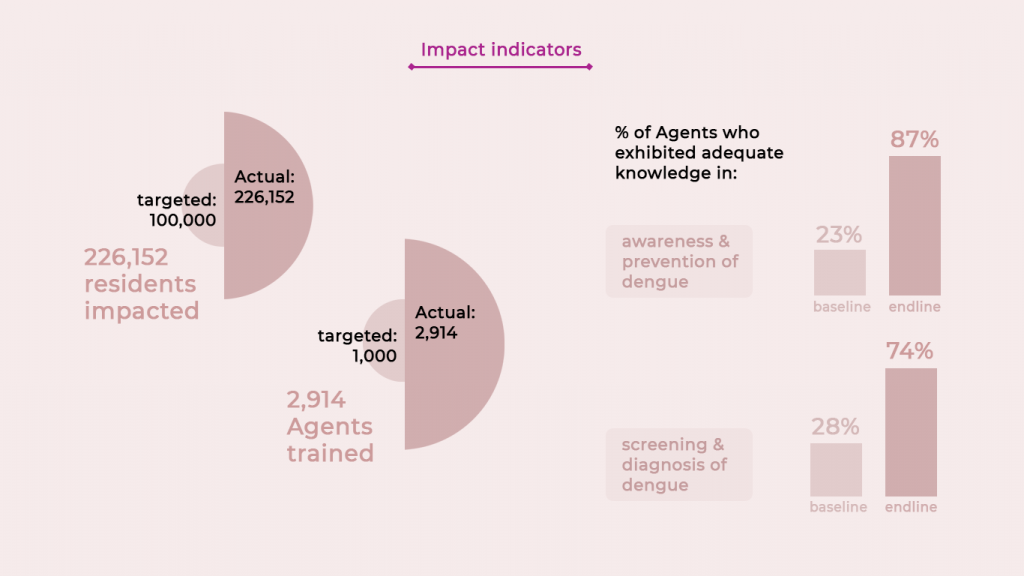
1. Rising need for quality training on infectious diseases, aside from COVID-19
One of the challenges faced during this campaign, was that all local healthcare units were focused on COVID-19, which meant less priority for other disease areas. Nonetheless, it is precisely during these vulnerable times, that there is an even more pressing need to be vigilant and keep other communicable diseases at bay. One of the key success indicators was the quality and quantity of Agents trained – most of them have never had training focusing on infectious diseases like dengue, despite it being a yearly outbreak in both countries. The upskilling of Agents within communities is a sustainable way of managing dengue in the long run, even after the conclusion of the campaign.
2. Collaboration with key local stakeholders is crucial
Through this campaign, we saw the importance of government buy-in, especially in areas where we have been newly introduced and where we lacked manpower. In Cambodia, we partnered with local health units and referral hospitals who supported us in spreading awareness amongst the community on symptoms of dengue fever and collecting key patient information needed for those who used rapid diagnostic tests (RDTs).
3. How digital proficiency affected campaigns
Running paid advertisements to promote our Facebook chatbot was effective in the Philippines as most digital natives in the Philippines are on Facebook. However, traction in Cambodia was low despite rigorous efforts. This key learning in tracking digital proficiency will help guide how we tailor future campaigns to reach different target populations.
